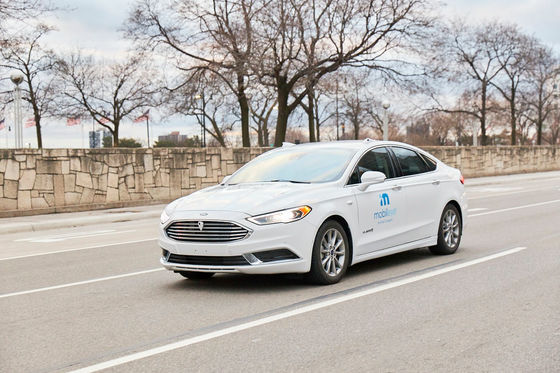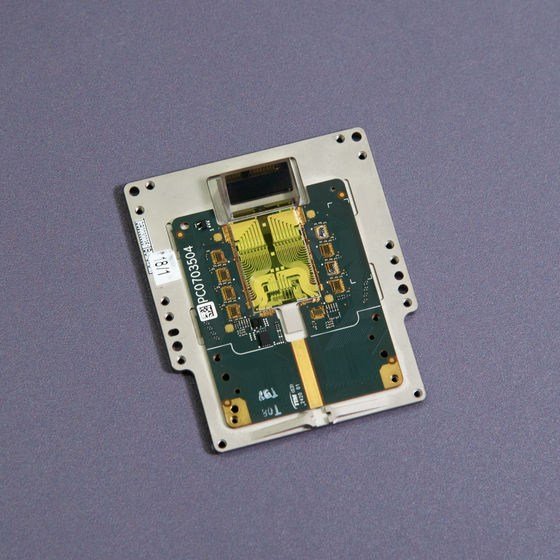Intel subsidiary Mobileye conducts self-driving car driving test in 2021 in 4 cities including Tokyo

'
CES 2021: Mobileye Innovation Will Bring AVs to Everyone, Everywhere | Intel Newsroom
https://newsroom.intel.com/news-releases/ces-2021-mobileye-avs-on-move/
Mobileye announces autonomous vehicle pilot programs in Tokyo, Shanghai, and Paris | VentureBeat
https://venturebeat.com/2021/01/11/mobileye-announces-autonomous-vehicle-pilot-programs-in-tokyo-shanghai-and-paris/
Mobileye leads the world with ' Road Experience Management (REM) ' that automatically generates high-precision maps, ' Responsibility Sensitive Safety Theory (RSS) ' that defines common behavioral characteristics that human drivers consider to be safe driving. It is a company that develops technology related to self-driving cars based on three sensing systems based on LIDAR technology.
Mobileye's self-driving system uses eight cameras, twelve ultrasonic sensors, and a front radar in combination with an onboard computer. News media VentureBeat said, 'Mobileye's self-driving system is Tesla's auto. It's similar to a pilot . '
Mobileye's self-driving system has been proven to be able to detect traffic lights and signs, allowing it to drive fully autonomously at intersections. However, there is a weakness that the area where autonomous driving is possible is only the area mapped by REM. In addition, Mobileye claims that roads of 7.5 billion km or more have already been mapped, and by 2024, by mapping roads of 1 billion km or more every day, the area where autonomous driving is possible will be expanded. ..

In a keynote speech by Mobileye at CES 2021, the company's future developments in self-driving car driving tests were discussed. Mobileye started driving tests of self-driving cars in Munich, Germany and Detroit, USA in 2020, but announced that it will expand the scope of the test to four cities, Tokyo, Shanghai, Paris and New York in 2021. I will. It seems that driving tests using REM will be conducted on general roads in these cities. However, it is unclear whether the test will be conducted in New York as it is in the stage of consideration.
BREAKING: We will be testing
#selfdrivingcars in new cities this year: Detroit, Tokyo, Shanghai, Paris & (pending regulation) New York City. “The backing of @Intel & the trinity of our approach are essential to rapidly scale #AVs ” - @AmnonShashua . Https://t.co/UfmDNZ3YAM pic.twitter.com/0WQMlEVAXV — Mobileye (@Mobileye) January 11, 2021
In addition, Mobileye said it envisions a future in which self-driving cars will enable enhanced wireless and light-based detection and ranging sensing, a LIDAR system that will be a new imaging radar technology sufficient to support autonomous driving. Announced SoC for. The SoC offers state-of-the-art signal processing that is fully digital, a variety of scan modes, rich RAW detection, and multi-frame tracking, 'making a huge performance leap,' Mobileye explains. .. According to Mobileye's explanation, autonomous vehicles equipped with the new SoC for LIDAR systems will be able to recognize up to 500,000 detections per second. The new SoC for LIDAR systems will be launched in 2025.

Mobileye also announced that the next-generation chip of the 'EyeQ' series, which is a camera image analysis chip, 'EyeQ6' is scheduled to appear in 2023. The EyeQ6 will be manufactured on TSMC 's 7nm process.
In addition, Mobileye also announced that it plans to build a vehicle dispatch service using self-driving cars in cooperation with Moovitp , a transportation application from Israel. Mobileye aims to launch more than 100 vehicles in Israel, France and South Korea by 2022. In addition, it seems that the self-driving car to be used for the service will be about 10,000 to 20,000 dollars (about 1 to 2 million yen) per vehicle, and it is expected that it will be equipped with Mobileye's LIDAR sensor.
You can also check the keynote speech given by Mobileye at CES 2021 in the following movie.
CES 2021 Intel GO Conference with Prof. Amnon Shashua --YouTube
Related Posts:







